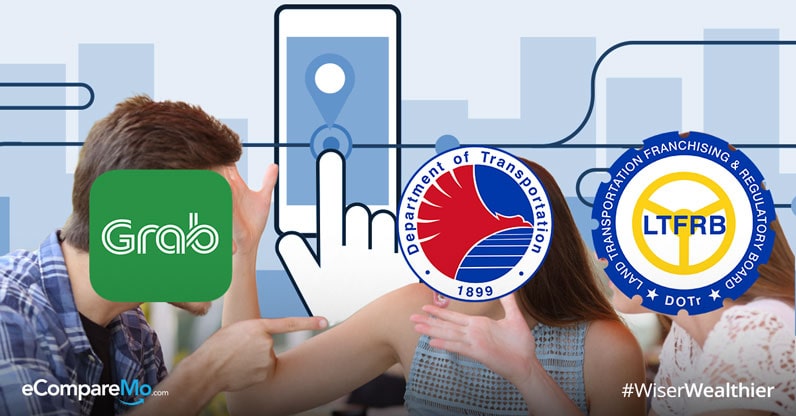Grab Vs. DOTr, LTFRB: Who’s Really Responsible For Our Booking Woes?
2 min readFact: There are more odds of you meeting your lifetime partner through a blind date than booking a Grab ride during rush hour. At least as of late.
To pacify the growing discontent among the riding populace, the transport network company (TNC) explained its side of the things.

In an email sent to its riders and partner drivers, the company said that the Land Transportation Franchising and Regulatory Board (LTFRB) and the Department of Transportation (DOTr) are the ones to blame.
To illustrate the disparity between supply and demand, Grab said that it currently has 35,000 drivers in its network. These drivers serve 600,000 riders daily, and the number peaks at 850,000 passengers on rainy days. The difficulty stems from the LTFRB’s cancellation of the P2-per-minute charge on top of other restrictions such as part-timing and number coding.
Grab said the government’s heavy-handed regulation on the transport network vehicle services (TNVS) industry caused them to lose 10 percent of their partner drivers.
(Read: Beat Inflation: A First-Timer’s Guide To Buying An Electric Scooter)
The blame game
To counter the claims hurled at them, a joint statement between DOTr and the LTFRB said that Grab Philippines “seems to confuse drivers with [transport network vehicle service] in determining supply.â€
According to the statement, a TNVS could find a replacement driver in case of absence of a partner driver.
The government has denied such accusations and attested that more applications for TNVS franchises are now being processed to meet the 65,000 cap set by the LTFRB.
“Currently, LTFRB is accepting applications for TNVS franchises, even outside the masterlist, contrary to the statement of Grab that TNVS allowed to apply for a franchise are limited to the masterlist,†the joint statement said.
“In fact, LTFRB has just completed the online registration of 10,000 new cars in addition to the masterlist, with plans to open registration for TNVS applicants for those slots in the master list which have become inactive,†it added.
Moving forward
After a scathing word war between the two parties, it seems like both are more than willing to let bygones be bygones and move forward to serve the public better.
Grab since then apologized for the email it sent, saying that it gives credit to the LTFRB for acting speedily on the matter. The company promised to work closely with government to keep up with the growing demand, especially that the holidays are fast approaching.
“Moreover, we would like to sincerely apologize for any miscommunication brought about by the EDM to targeted recipients. In no way was this EDM meant to undermine the ongoing progress and dialogues being undertaken to add TNVS supply,†said Grab Philippines head Brian Cu.
“We value our open line of communication and goodwill with our regulators. We will continue to tighten up on our communications as we work closely with the government towards addressing the growing demand in time for the Holiday season,†he added.
Last March, Uber sold its Southeast Asian operations to Grab in its bid to become publicly listed in the United States. Since then, the LTFRB approved other players in the industry to encourage competition. Among the new TNCs approved are ePickMeUp, GoLag, Hype, and OWTO. Meanwhile, Micab and Hirna are also authorized as partners of TNCs to field taxi cabs in the Philippines.
Sources: GMA News Online, Top Gear Philippines, Department of Transportation